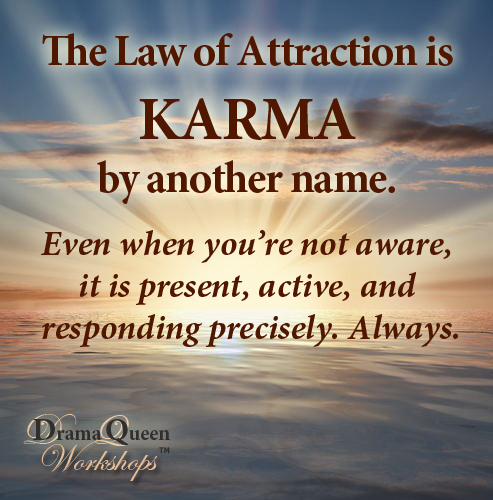At some point, most of us have innocently supported terrorism and tyrannical behavior. We have literally worshipped at its feet. We simply didn’t know it.
By definition, tyranny is “the cruel, unreasonable, or arbitrary use of power or control”. For centuries, and with the best of intentions, we good people have taught our children to worship acts that are inhumane and tyrannical. We’ve done that by teaching them to worship a god whose behavior is inhumane and tyrannical. To top it off, we’ve told them that God has far exceeded the most extreme tyrant by threatening to torture them throughout all eternity if they don’t worship Him, and do everything He has commanded.
When did tyranny become godly behavior?

We worship an angry punitive god, modeled after the ancient mythological Greek god Zeus.
Before humans settled into the idea that there was only one god, they worshipped many mythological ones. Supreme among them was Zeus, king of gods and the universe. He is closely associated with the sky, lightning, thunder, law, order and justice.
According to myth, Zeus threw lightning bolts to Earth when he was angry with humans. Sound familiar? You’ve never heard a violent storm referred to as “an act of God”? You’ve never heard someone declare that God’s “going to strike you dead”?
This image of an angry, destructive God has pervaded most cultures since man began to theorize about the cause of things that were outside of his control. Even today, this belief in a tyrannical God whose punishment exceeds any crime is a belief that unifies us, no matter what we call our deity.
So is it any wonder that terrorist groups in other parts of the world, who also worship a brutal god, are heinously beheading innocent people and making threatening gestures toward the rest of us? They’ve told us that they are doing this to honor their god. As far as they are concerned, they are merely being obedient to their god.
We good people are horrified by the thought that anyone would worship a god who is violent, vengeful, and solves problems by causing physical harm to humans. We characterize them and their holy book as demonic. Guess what: Our scriptures repeatedly tell us to do grotesque, inhumane things to each other, too. Why don’t we know that?
Repeating the bad and making it bigger

A Brussels cathedral window depicts a winged God expelling Adam and Eve.
We have magnified the message that God is cruel by spreading stories of His brutal behavior far and wide. One of those “God’s gonna getcha” stories claims that He was so furious with disobedient Adam and Eve that He banished them to an unknown land.
We don’t put children on the street when they’ve done wrong. In fact, as good people, we probably would call the authorities if we knew someone else had done that, especially to children who probably be classified today as learning disabled.
After all, if we believe this horrific story, we have to remember that they were essentially infants in adult bodies. We also forget that Adam and Eve were the ancestors of Neanderthals. What was their mental capacity?
If someone we knew to be a good person was falsely accused of such cruelty, we’d staunchly defend them against such preposterous charges. But we don’t say a word when we read that God has done it. What’s that about?
Should we defend God or a book?
We have made it our mission to spread these sadistic stories throughout the planet so that good people everywhere can come together as a community to affirm our belief that God is angry, vengeful and tyrannical. As we have for thousands of years, we repeat these stories, despite what they imply about the nature of God.
Scriptures demanding that we do heinous things to each other—from enslavement to murder—are rarely read to us from pulpits, where the claim is made that these are the words of God. Of course, there are exceptions.
These brutal scriptures were preached to slaves to justify the cruelty that was being heaped upon them. The message: God demanded slavery, and He demanded that slaves obey their masters. Or else.
It’s the godly threats that were so much a part of these Bible lessons that prompted slaves to share these stories with great conviction. It was important that they protect their children from harm by instilling the fear of God in them.
Even today, most black people I know, even those with high levels of literacy and formal education, insist that the Bible is the word of God. As a people, we are adamant that the book is inerrant and will condescend to those who believe otherwise. We’re convinced that they won’t be “saved” from God’s eternal punishment. We don’t realize that we’re characterizing God as sadistically unforgiving and satanic.
We simply don’t think it through because thinking is discouraged where faith is involved. As a consequence, when good people hear about acts such as genocide and deadly torture in other parts of the world, we judge them to be unacceptable and inhumane.
But if it’s God is committing the acts, we embrace genocide (the Great Flood), conditional forgiveness and sadistic torture (crucifixion) as acceptable and divine. We paint a good face on bad behavior because, as god-fearing people, we are afraid to do otherwise.
If God is Love, why should we be god-fearing?
We embrace the “Good Book” to our bosom. All we can see are its “good” parts. We staunchly defend this book with great passion even though it tramples on God’s goodness, even though it says that God won’t forgive the guilty unless an innocent one is tortured to death. And we never stop to ask: If God is Love, why should I be god-fearing?
If a preacher tells us that the book is a “love story”—without mentioning that it orders us to murder each other for a variety of reasons—we parrot the words and insist that the book is a love story. If a preacher tells us to say that we are what the book says we are—without mentioning that it says that we are evil by nature (and worse)—we repeat his words without reservation.
If a preacher says that the entire book is the Word of God, we agree that every word is true. Because that’s what good people do. After all, we don’t simply want to be perceived by everyone as good people. We want to be good people.We might even post on Facebook that the Bible is the word of God, because we want others to see that we are on board with the rest of the good people.
The nature of God: Divine or demonic?

Genocide. Is it divine or demonic?
There are rules. Good people obey them. We don’t kill everyone who works on Saturdays, as God allegedly instructed in Exodus 31:15. We know that we can’t successfully use the “God told me to do it” defense if we murder our children for being disrespectful, as commanded in Leviticus 20:9.
We don’t shut the door on those in life-threatening situations. And we good people don’t stone women to death if are not virgins when they marry. We certainly don’t murder anyone we know who cheats on a spouse.
These are acts that the Bible—a book written during ancient, less civilized and more barbaric times—commands us to commit. We place our hands on it in court, as proof that we’re telling the truth, the whole truth and nothing but the truth before God. But that same court will not rule in our favor if we commit some of the violent acts that the same Bible demands.
Worshiping a violent god is worshiping violence itself
We good people must understand that it is impossible to worship a violent god without worshipping violence itself. For those of us from the Judeo-Christian tradition, we must ask ourselves if we are in any position to characterize scriptures in the Koran as demonic and members of the human family in the Middle East as “bad people.” What is our basis of comparison: The “Good Book”?
Hear me well: It’s not exclusively terrorists’ beliefs that have created this hell on Earth. We good people have innocently, yet actively supported tyranny for thousands of years. We have worshipped it; so we share responsibility for all the terrorism in the world, on our streets, in our homes, beds and hotel elevators.
We are being brutalized by our own beliefs. Is it too late to loose ourselves from their deadly clutch?
Awaking from the nightmare we created
Make no mistake: We are not helpless. Good people created this hell and we can create something more heavenly.
Good people everywhere can merely rethink what God is and what God does. We can stop telling everyone we care about that God solves problems by killing and torturing His children. We can spread stories that reflect God’s divine nature. Then, we can choose to model that behavior.
There couldn’t possibly be a more urgent moment in human history for us to consider the possibly that what God has really commanded us to do is to love one another. We can do that now—or after tyranny (theirs and ours) destroys the world.
Much love to you, Sweet Soul.










 We don’t have to do anything to invoke the laws of gravity or attraction. We don’t have to read books or attend seminars to learn how to use these laws for our benefit. They are in effect all the time, without our awareness, intervention or facilitation.
We don’t have to do anything to invoke the laws of gravity or attraction. We don’t have to read books or attend seminars to learn how to use these laws for our benefit. They are in effect all the time, without our awareness, intervention or facilitation.
